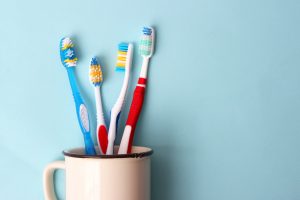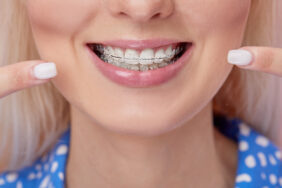 Whether it’s dentistry or auto maintenance, a preventive approach is always for the best. When you take a preventive perspective with your healthy, you’re more likely to spot problems before they become severe. If you can stop a condition like gum disease or cavities from ever forming, you won’t need the restorative treatment that it takes to heal. For both children and adults, there are a number of preventive dentistry practices that you can employ. Utilize home care and dental visits to create a preventive health plan that keeps your teeth safe and healthy for life.
Whether it’s dentistry or auto maintenance, a preventive approach is always for the best. When you take a preventive perspective with your healthy, you’re more likely to spot problems before they become severe. If you can stop a condition like gum disease or cavities from ever forming, you won’t need the restorative treatment that it takes to heal. For both children and adults, there are a number of preventive dentistry practices that you can employ. Utilize home care and dental visits to create a preventive health plan that keeps your teeth safe and healthy for life.
Attend Checkups and Cleanings to Spot Issues
First and foremost, a biannual checkup allows your dentist to professionally clean your teeth — removing bacteria buildup and giving you a fresh, clean smile. Beyond the cleaning, a checkup also allows your dentist to spot potential issues like bruxism or tooth crowding before they fully develop. Tools like X-rays and fluoride rinse give your dentist the ability to see problems that you can’t with the naked eye, and strengthen your teeth against future damage. These checkups are essential for a healthy smile.
Your Children Can Build Preventive Habits Early On
Your children also need to attend regular dentist appointments for more than just treatment. During these early years, your dentist can educate your child on the proper way to care for their teeth at home. Building a positive relationship now will help your child feel comfortable attending dentist appointments in the future as well. Dietary habits, self cleaning, and looking for signs of trouble are all positive habits that your child can utilize to protect their own smile for years to come.
Make Prevention Part of Your Home Care Routine
The most important preventive step that you can take in caring for your teeth starts at home. Brushing at least twice a day is a valuable practice that prevents bacterial buildup. Try brushing after meals for added protection. You should also be flossing once a day to clean the surfaces of your teeth that your brush head can’t readily reach. If you’re not currently in the habit of flossing, try setting an alarm on your phone to help you remember. By making prevention a focus for you and your children, you can reduce your risk for cavities and other serious oral health conditions.









